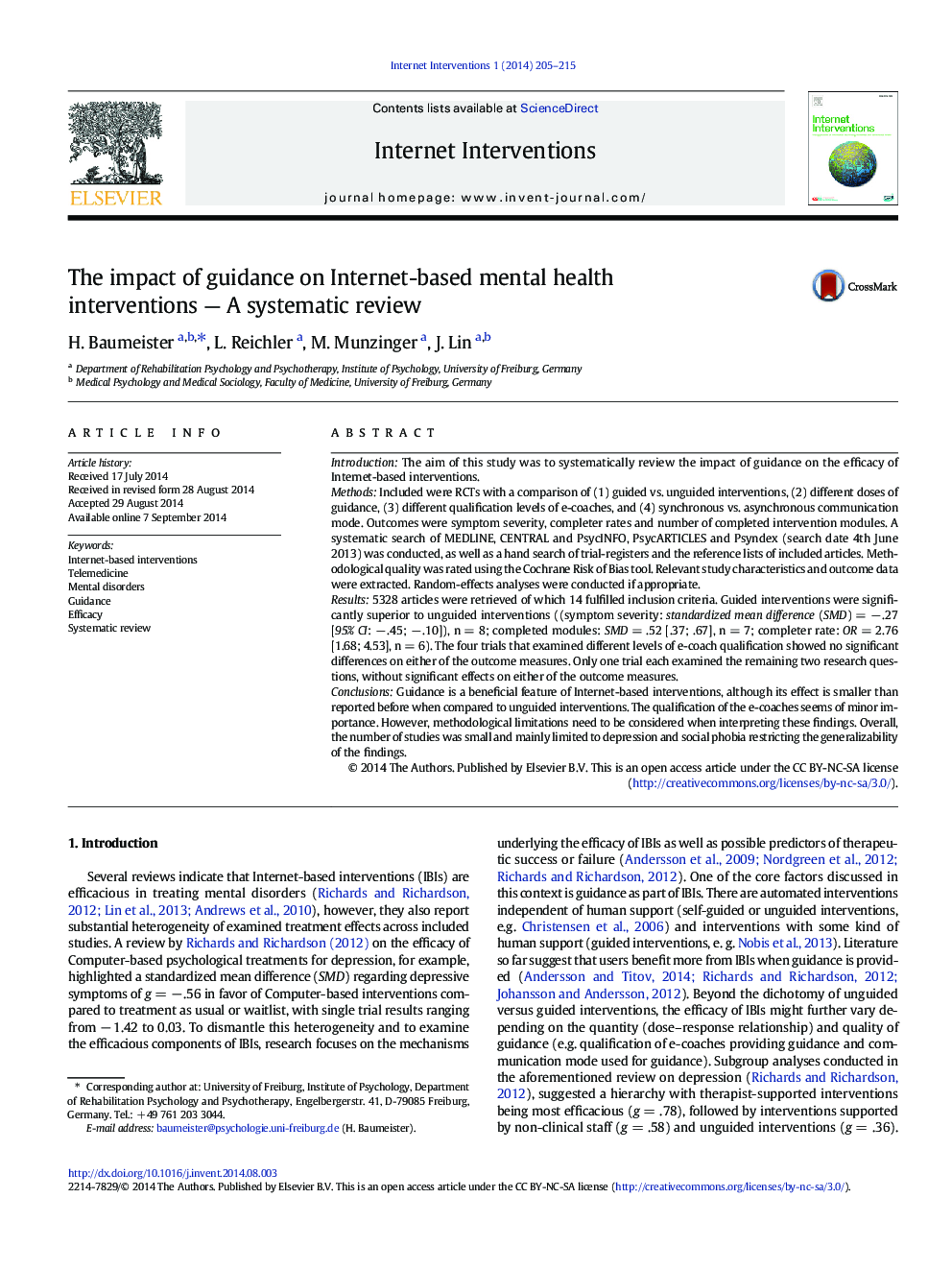| Article ID | Journal | Published Year | Pages | File Type |
|---|---|---|---|---|
| 555497 | Internet Interventions | 2014 | 11 Pages |
•Guidance is a beneficial feature of Internet-based interventions.•The difference in effect between guided and unguided interventions is less pronounced than reported before.•The qualification of e-coaches providing guidance seems of minor importance.•The evidence on further aspects of guidance is scarce
IntroductionThe aim of this study was to systematically review the impact of guidance on the efficacy of Internet-based interventions.MethodsIncluded were RCTs with a comparison of (1) guided vs. unguided interventions, (2) different doses of guidance, (3) different qualification levels of e-coaches, and (4) synchronous vs. asynchronous communication mode. Outcomes were symptom severity, completer rates and number of completed intervention modules. A systematic search of MEDLINE, CENTRAL and PsycINFO, PsycARTICLES and Psyndex (search date 4th June 2013) was conducted, as well as a hand search of trial-registers and the reference lists of included articles. Methodological quality was rated using the Cochrane Risk of Bias tool. Relevant study characteristics and outcome data were extracted. Random-effects analyses were conducted if appropriate.Results5328 articles were retrieved of which 14 fulfilled inclusion criteria. Guided interventions were significantly superior to unguided interventions ((symptom severity: standardized mean difference (SMD) = − .27 [95% CI: − .45; − .10]), n = 8; completed modules: SMD = .52 [.37; .67], n = 7; completer rate: OR = 2.76 [1.68; 4.53], n = 6). The four trials that examined different levels of e-coach qualification showed no significant differences on either of the outcome measures. Only one trial each examined the remaining two research questions, without significant effects on either of the outcome measures.ConclusionsGuidance is a beneficial feature of Internet-based interventions, although its effect is smaller than reported before when compared to unguided interventions. The qualification of the e-coaches seems of minor importance. However, methodological limitations need to be considered when interpreting these findings. Overall, the number of studies was small and mainly limited to depression and social phobia restricting the generalizability of the findings.
